
A Tribe Called Quest was an American hip hop group formed in Queens, New York City, in 1985, originally composed of rapper and main producer Q-Tip, rapper Phife Dawg, DJ and co-producer Ali Shaheed Muhammad, and rapper Jarobi White. The group is regarded as a pioneer of alternative hip hop and merging jazz with hip hop, influencing numerous hip hop and R&B musicians.
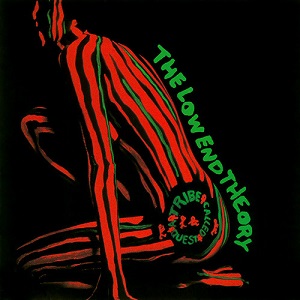
The Low End Theory is the second studio album by American hip hop group A Tribe Called Quest, released on September 24, 1991, by Jive Records. Recording sessions for the album were held mostly at Battery Studios in New York City, from 1990 to 1991. The album was primarily produced by group member Q-Tip, with a minimalist sound that combines bass, drum breaks, and jazz samples, in a departure from the group's debut album, People's Instinctive Travels and the Paths of Rhythm (1990). Lyrically, the album features social commentary, word play, humor, and interplay between Q-Tip and fellow member Phife Dawg.
The Native Tongues were a collective of late 1980s and early 1990s hip-hop artists known for their positive-minded, good-natured Afrocentric lyrics, and for pioneering the use of eclectic sampling and jazz-influenced beats. Its principal members were the Jungle Brothers, De La Soul, A Tribe Called Quest, Monie Love, and Queen Latifah. The collective was also closely tied to the Universal Zulu Nation. Rolling Stone cites the track "Doin' Our Own Dang" as "the definitive Native Tongues posse cut".
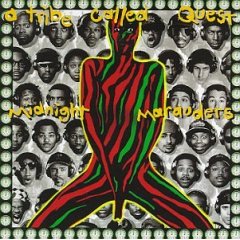
Midnight Marauders is the third studio album by American hip hop group A Tribe Called Quest, released on November 9, 1993, by Jive Records. Recording sessions for the album occurred at Battery Studios, Platinum Island Studios and Scorcerer Sound in New York City. Its production was mainly handled by Q-Tip, with contributions from Skeff Anselm, Large Professor and the group's DJ, Ali Shaheed Muhammad. A culmination of the group's two previous albums, People's Instinctive Travels and the Paths of Rhythm and The Low End Theory, it features an eclectic, gritty sound based on jazz, funk, soul and R&B samples, in addition to socially conscious, positively-minded, and humorous lyrics.

Kamaal Ibn John Fareed, better known by his stage name Q-Tip, is an American rapper, record producer, singer, and DJ. Nicknamed the Abstract, he is noted for his innovative jazz-influenced style of hip hop production and his philosophical, esoteric and introspective lyrical themes. He embarked on his music career in the late 1980s, as an MC and main producer of the influential alternative hip hop group A Tribe Called Quest. In the mid-1990s, he co-founded the production team The Ummah, followed by the release of his gold-certified solo debut Amplified in 1999. In the following decade, he released the Grammy Award-nominated album The Renaissance (2008) and the experimental album Kamaal the Abstract (2009).

Beats, Rhymes and Life is the fourth studio album by American hip hop group A Tribe Called Quest. Released on July 30, 1996, by Jive Records, it followed three years after the highly regarded and successful Midnight Marauders. Produced by The Ummah, the album is a departure from the joyful, positive vibe of the group's earlier albums and is regarded as their darkest album in content. It debuted at number one on the Billboard 200 and was certified platinum by the Recording Industry Association of America (RIAA) on October 27, 1998.

Malik Izaak Taylor, known professionally as Phife Dawg, was an American rapper and a member of the group A Tribe Called Quest with Q-Tip and Ali Shaheed Muhammad. He was also known as the "Five-Foot Assassin" and the "Five-Footer," because he stood at 5 feet 3 inches (1.60 m).
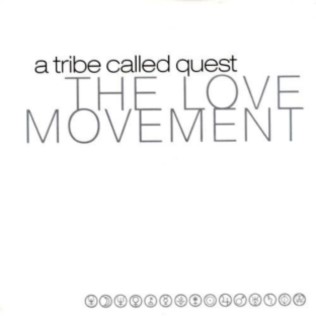
The Love Movement is the fifth studio album by American hip hop group A Tribe Called Quest, and their last album released during group member Phife Dawg's lifetime. Released on September 29, 1998, by Jive Records, it is a concept album, exploring the lyrical theme of love. Musically, it is a continuation of the group's previous album, Beats, Rhymes and Life, featuring minimalist R&B and jazz-oriented production by The Ummah. The lead single, "Find a Way", charted on the Billboard Hot 100 and was followed by a second single, "Like It Like That". The album debuted at number three on the Billboard 200 and was certified gold by the Recording Industry Association of America (RIAA) on November 1, 1998. The group announced its disbandment a month before the album's release.
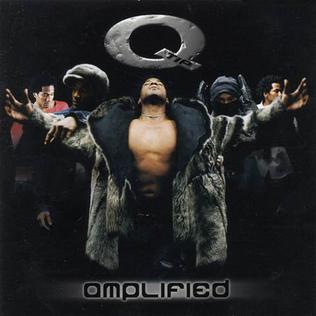
Amplified is the debut studio album of American rapper Q-Tip, released November 30, 1999, on Arista Records. It became his first solo release after the disbandment of his former group A Tribe Called Quest in 1998. The production was primarily handled by Q-Tip and Jay Dee of the Ummah. The album spawned the Billboard Hot 100 hits "Vivrant Thing" and "Breathe and Stop".

The Infamous is the second studio album by the American hip hop duo Mobb Deep. It was released on April 25, 1995, by BMG, RCA Records and Loud Records. The album features guest appearances by Nas, Raekwon, Ghostface Killah, and Q-Tip. It was largely produced by group member Havoc, with Q-Tip also contributing production while serving as the mixing engineer. Most of the leftover songs from the album became bonus tracks for Mobb Deep's The Infamous Mobb Deep album (2014).
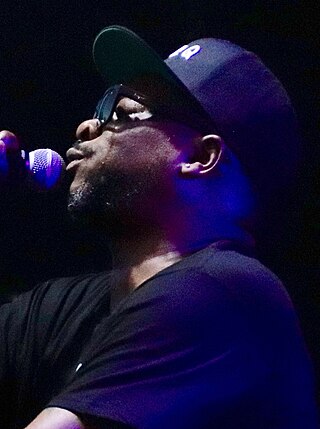
Jarobi White is an American hip hop artist, chef, and a founding member of alternative hip hop group A Tribe Called Quest, alongside members Q-Tip, Phife Dawg, and Ali Shaheed Muhammad. He left the group after the release of their debut album, People's Instinctive Travels and the Paths of Rhythm in order to pursue culinary arts, before returning for their last album, 2016's We Got It from Here... Thank You 4 Your Service. In the early 2010s, Jarobi formed evitaN with Dres, formerly of Black Sheep. Their first album, Speed of Life, was released in October 2012.

"Can I Kick It?" is a song by American hip hop group A Tribe Called Quest, released in October 1990 as the third single from their debut album, People's Instinctive Travels and the Paths of Rhythm (1990). The song, which has a call and response chorus, was recorded in 1989, when the group members were aged 18-19.

"Bonita Applebum" is the second single from A Tribe Called Quest's debut album People's Instinctive Travels and the Paths of Rhythm. The song contains samples of "Daylight" by RAMP, "Memory Band" by Rotary Connection, "Jagger the Dagger" by Eugene McDaniels and "Fool Yourself" by Little Feat. Rolling Stone featured "Bonita Applebum" on their list of 20 essential songs from the group.
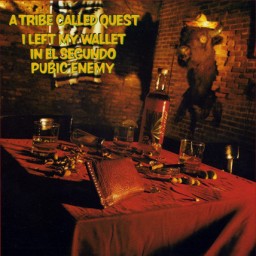
"I Left My Wallet in El Segundo" is a song by American hip hop group A Tribe Called Quest, released as the debut single from their first album, People's Instinctive Travels and the Paths of Rhythm (1990). The song contains a sample of "Funky" by The Chambers Brothers as the main hook.

Whut? Thee Album is the debut studio album by American rapper Redman. It was released on September 22, 1992, by Def Jam Recordings, Rush Associated Labels and Chaos Recordings, a dimension of Columbia Records. Taking place at Ian London Studios, North Shore Soundworks, and Power Play Studios, recording sessions began in 1991 and continued into 1992. The album features production from mentor and fellow Hit Squad member Erick Sermon; as well as Redman himself under his birth name Reggie Noble, with additional production from Pete Rock.

The Anthology is A Tribe Called Quest's 1999 greatest hits compilation spanning their career up to that point. The compilation contains songs from all of their currently existing full-length catalogue, including People's Instinctive Travels and the Paths of Rhythm, The Low End Theory, Midnight Marauders, Beats, Rhymes and Life and The Love Movement, as well as select soundtrack releases. It also contains Q-Tip's "Vivrant Thing", which was featured on the first music compilation for Violator Management through Violator Records/Def Jam Recordings. The song would also later be featured on Q-Tip's solo effort, 1999's Amplified. "Vivrant Thing" is also substituted with "Mr. Incognito" for the Japan release. The album cover features Erykah Badu with fluorescent stripes of green and orange reminiscent of the traditional colors of the Kente tribe of the north Congo.

A Tribe Called Quest was an American hip hop group, formed in 1985. They released six studio albums, five compilations, sixteen singles and two extended plays. The group was made up of rapper/main producer Q-Tip, the late rapper Phife Dawg and DJ/co-producer Ali Shaheed Muhammad. Phife Dawg was only persuaded to join when a fourth member, rapper Jarobi White, joined the group. In 1989 they signed a demo deal with Geffen Records, but not given a full-fledged recording contract. After receiving many offers, they opted for the Jive Records label, an independent rap label. In under a year, they managed to produce People's Instinctive Travels and the Paths of Rhythm to critical acclaim, but lukewarm sales, reaching #91 on the Billboard 200, though it did eventually achieve gold certification by the Recording Industry Association of America (RIAA).
Bob Power is an American two time Grammy Award–nominee and multi-platinum record producer, audio engineer, composer, arranger, performer, and music educator.
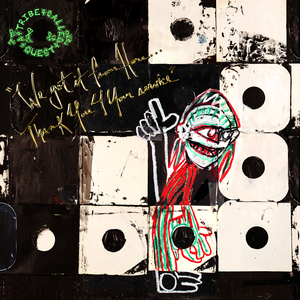
We Got It from Here... Thank You 4 Your Service is the sixth and final studio album by American hip hop group A Tribe Called Quest. It was released on November 11, 2016, by Epic Records.

"We the People...." is a song by American hip hop group A Tribe Called Quest, and the first single from their sixth and final album, We Got It from Here... Thank You 4 Your Service. Produced by Q-Tip and co-produced by Blair Wells, the song contains a sample of the drum break of "Behind the Wall of Sleep" by Black Sabbath. The name of the track refers to the first three words of the Preamble to the United States Constitution. The chorus of the politically-charged song parodies Donald Trump's presidential campaign. "We the People...." was critically acclaimed and included on several year-end lists by publications.



















